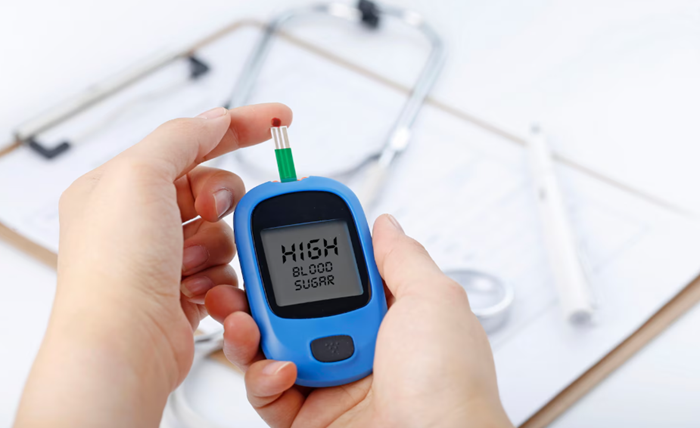Managing diabetes requires careful attention to lifestyle, diet, and medication. For individuals diagnosed with this chronic condition, it is crucial to have access to the right diabetic supplies to monitor and control their blood sugar levels efficiently. In this article, we will discuss the necessary supplies and equipment that play a vital role in the daily management of diabetes.
Understanding the Importance of Diabetes Management
Diabetes is a long-term health condition that affects how your body turns food into energy. Without proper management, it can lead to serious health complications, including heart disease, kidney failure, and vision loss. Effective diabetes management hinges on the ability to maintain blood glucose levels within a target range, which is why having the right supplies is indispensable.
The Cornerstone of Diabetes Management: Blood Glucose Monitors
The most fundamental tool for diabetes management is a blood glucose monitor. This device allows individuals to check their blood sugar levels regularly. Frequent monitoring is necessary to make informed decisions about nutrition, physical activity, and medication.
Test Strips and Lancets: Essential for Blood Glucose Monitoring
To use a blood glucose monitor, one needs test strips and lancets. Test strips are chemically treated to react with the glucose in the blood, while lancets are small needles used to prick the finger to obtain a blood sample. Availability of these supplies is critical to conduct blood sugar tests as recommended by healthcare providers.
The Role of Insulin Pens and Syringes in Insulin Administration
For those requiring insulin therapy, insulin pens and syringes are crucial diabetic supplies. These devices deliver insulin into the body, and there are various types to suit individual needs and preferences – including pre-filled pens and syringes for those who vial and inject insulin manually.
Insulin Pump: An Alternative to Multiple Daily Injections
An insulin pump is a device that provides a continuous dose of insulin. It is an alternative for individuals who prefer not to use multiple daily injections. However, it requires a thorough understanding of its operation and maintenance.
Ketone Test Strips: Monitoring for Diabetic Ketoacidosis
Especially for individuals with type 1 diabetes, ketone test strips are important. These strips can detect the presence of ketones in urine, an indication that the body is using fat for fuel instead of glucose, which can lead to diabetic ketoacidosis if left unchecked.
Sharps Disposal Containers for Safe Disposal
Proper disposal of needles, lancets, and syringes is critical for safety. Sharps disposal containers are designed to safely dispose of these items, reducing the risk of needle-stick injuries and contamination.
Managing Diabetes On-the-Go: Carrying Cases and Coolers
For individuals who are frequently on the move, carrying cases and coolers are vital to keep their diabetic supplies organized and insulin at the correct temperature. Portable options ensure that one has all the necessary supplies within reach, whether at work, traveling, or engaging in physical activities.
Emergency Sugar Sources for Hypoglycemia
Having an emergency sugar source, such as glucose tablets or gels, is essential in case of hypoglycemia, where blood sugar levels drop too low. Timely consumption of these can rapidly raise blood glucose to safer levels.
Continuous Glucose Monitoring Systems: The Advancement in Glucose Tracking
Continuous Glucose Monitoring (CGM) systems offer a more advanced method of tracking glucose levels throughout the day and night. These systems can provide real-time glucose readings and trends, assisting in more comprehensive diabetes management.
Glucose Control Solutions for Test Strip Calibration
To ensure a blood glucose monitor and test strips are working accurately, glucose control solutions are used for calibration. These solutions test whether the strips and monitor provide correct readings, which is fundamental for reliable blood sugar management.
The Significance of Proper Training and Education
Whilst acquiring the right diabetic supplies is critical, proper training on how to use these tools is equally essential. Many diabetes education programs and clinics offer instruction on the use of these supplies, ensuring that those with diabetes can manage their condition with confidence and knowledge.
Collaboration with Healthcare Providers
It’s important to work closely with healthcare providers to determine the most appropriate supplies for effective diabetes management. Medical professionals can provide guidance on the type and quantity of supplies needed, as well as instructions on their correct use.
Conclusion
For effective diabetes management, access to the right diabetic supplies is non-negotiable. From monitoring blood glucose levels to administering insulin and safely disposing of sharps, each supply plays a role in maintaining overall health and preventing complications. With proper education and the support of healthcare providers, individuals with diabetes can take charge of their condition and lead full, active lives.
In summary, effective management of diabetes is multi-faceted, encompassing a variety of supplies and equipment, alongside education and support. Investing in these supplies is an investment in one’s health and wellbeing – a priority for anyone managing diabetes.


